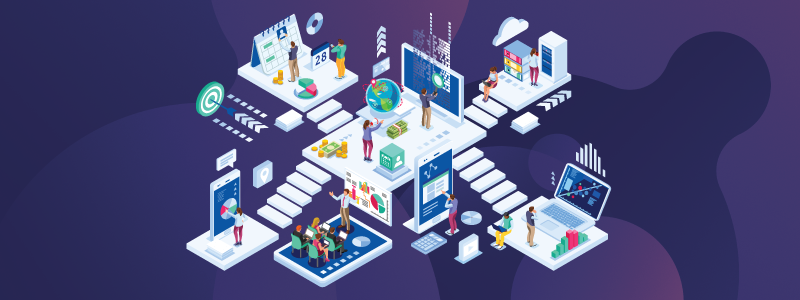Fighting back against “Big Tech” is all the rage in state houses these days. After unsuccessful attempts to convince Arizona, Georgia, and North Dakota lawmakers that the future of their economy hinges on better prices on V-Bucks to use in Fortnite, The Coalition for App Fairness and its backers Epic Games, Basecamp, and Spotify, has its sights set on Illinois. While we don’t disagree the app economy is a critical part of Illinois’ economic growth, the sponsors of this bill fail to realize that the majority of app developers need more than a third-party payment option to grow and compete with the global brands driving SB 2311.
There’s no push in this legislation for expanded STEM/STEAM education to help fill the nearly 500,000 open jobs in the app economy. No mention of COVID-19 related relief programs to help the 205,360 people employed by the state’s actual app economy afloat. In short, there really isn’t anything to help my members, the small to medium sized app developers creating telehealth apps so you can still see your doctor right now or the cloud infrastructure apps allowing you to work from home. To reduce the app economy to virtual currency and downloadable unicorns diminishes the economic contributions of our members in Illinois.
The argument that this bill would “liberate” app developers from paying 30 percent to platforms is laughable. This is intentional confusion on behalf of SB 2311’s backers to make the amount they owe the app stores seem outrageous and that the only service platforms provide are payment services. The truth is 84 percent of app makers are paying zero or 15 percent commission on digital goods and services. This bill isn’t going to help put more money in the pockets of our small business members, but instead continue to fatten the coffers of the global brands backing SB 2311.
Platforms, like the Apple App Store and Google Play Store, allow our members to reach a global audience that leverages the trust consumers have in their store policies to ensure an app won’t put malware on their phone. But SB 2311 wants to trade privacy and security for a phantom consumer benefit coming from changing a payment processor. While there are many legitimate payment processors out there like Square or Stripe, as written the bill would allow ANY third-party payment option, including perhaps two guys out of Lithuania who build one called “Circle” that steals your info, stores your money in Russia, and then abscond with it all after a month.
Further, the idea that Apple and Google lock-in consumers to their devices doesn’t track with what we hear from our members about their customers. Developers are going to follow where their customer base goes creating apps for both operating systems and the web. We like to say our members make cross platform apps for cross platform people. This is a big change from the days when software titles were limited to who could afford shelf space at your local Best Buy. Consumers have a greater choice now in apps and services thanks to platforms creating an environment where one person’s meditation app can compete alongside Headspace or Calm.
So, let’s break down SB 2311 to its essence — a billion-dollar company with no presence in Illinois that knowingly broke its terms of service with app store platforms wants the state legislature to solve a contract dispute to stop “Big Tech” from app developers and consumers. And if you believe that SB 2311 isn’t a scam to benefit one company, I have a digital pegasus with a battle hammer to sell you.
